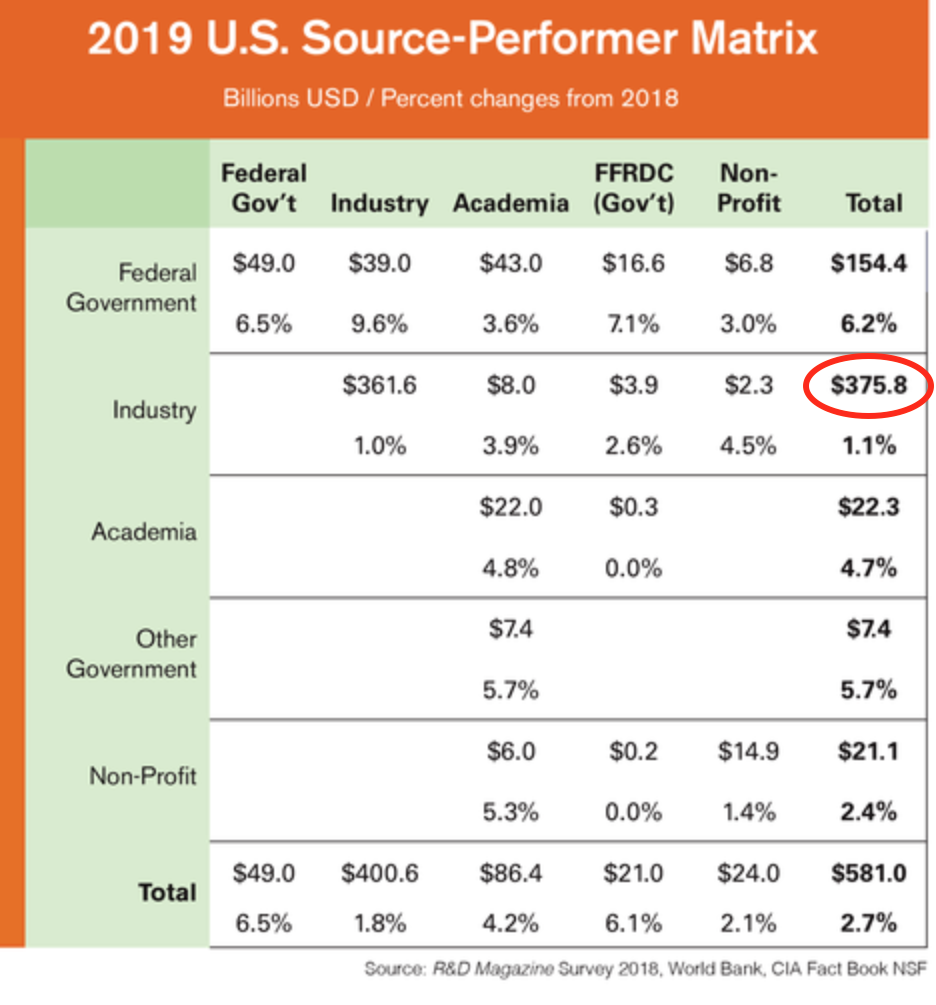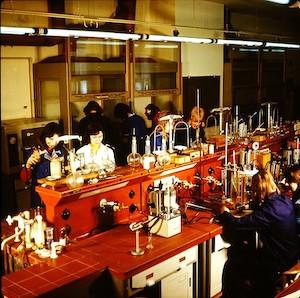It's mildly amusing that ACSH is referred to as "industry-friendly." That term, which is applied to us by friend and foe alike, is based on a half-truth. And half-truths are the worst kind of "truths" because they're actually lies.
The American Council on Science and Health was founded in 1978 "by a group of scientists with a singular focus: to publicly support evidence-based science and medicine." Importantly, "We are not a trade association. We do not represent any industry."
 However, good science comes from many different places, including industry. Industry research cannot and should not be written off because, according to R&D Magazine, industry is responsible for funding nearly $376 billion of the total $581 billion that our country will spend on research in 2019. In other words, about 2/3 of all R&D in the United States is paid for by industry. Without it, research would come to a grinding halt.
However, good science comes from many different places, including industry. Industry research cannot and should not be written off because, according to R&D Magazine, industry is responsible for funding nearly $376 billion of the total $581 billion that our country will spend on research in 2019. In other words, about 2/3 of all R&D in the United States is paid for by industry. Without it, research would come to a grinding halt.
When we evaluate the quality of a scientific paper or policy, we rarely ask, "Who paid for it?" Instead, we ask, "Is this evidence-based?" It simply doesn't matter to us if the research or policy proposal originated in industry, government, or academia.
Therefore, anyone who says we're "pro-industry" clearly has never read our work carefully. The people who have read our work carefully -- such as those who represent the organic, dietary supplement, and alternative medicine industries -- absolutely hate our guts. It's for a good reason, too.
Why the Organic Industry Hates ACSH
The organic industry is wealthy, powerful, and growing. In 2017, sales in the U.S. totaled nearly $50 billion, up over 6% from the previous year. The Organic Trade Association openly brags about this. (Could you imagine the backlash if Big Pharma bragged about its revenues?)
But ACSH never jumped aboard the bandwagon, even though there is a lot of money to be made. Why? Because there is no scientific evidence to support the consumption of organic food. It isn't safer, healthier, tastier, or better for the environment compared to regular food. In fact, research suggests it's worse for the environment because yields are lower.
Likewise, the global dietary supplement and alternative medicine industries are supposed to be $349 billion and $211 billion, respectively, by 2026. (There is probably some overlap between those two figures.) Yet, we are staunchly opposed to both. If you are a healthy adult without some sort of nutritional deficiency, you do not need a dietary supplement. Besides, the industry is poorly regulated, which is why some products (like kratom) are flat-out dangerous and others (like "all natural," magical boner honey) are spiked with Viagra.
Our opposition to alternative medicine is rooted in similar objections. It is poorly regulated, few of its touted "cures" actually work, and some of them are even dangerous.
And despite what our critics say, we've gone after Big Pharma, too. When AstraZeneca used a quirk of chemistry to unethically profit from that little purple pill called Nexium, Dr. Josh Bloom criticized it as a "money grab." ACSH also has been critical of Purdue Pharma, which lied about the addictive potential of OxyContin.
The bottom line is this: If we're industry shills, we're extraordinarily bad at it. If you wish to call us "evidence shills," however, we'll happily claim that moniker.




